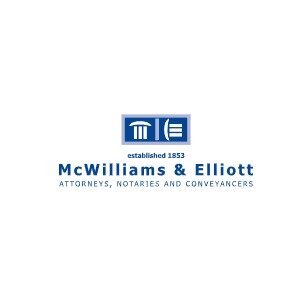Best Workers Compensation Lawyers in Port Elizabeth
Share your needs with us, get contacted by law firms.
Free. Takes 2 min.
List of the best lawyers in Port Elizabeth, South Africa
About Workers Compensation Law in Port Elizabeth, South Africa
Workers Compensation Law in Port Elizabeth, and more broadly in South Africa, is designed to provide benefits to employees who have become injured or sick as a result of their work. These laws ensure that affected workers are provided with benefits to compensate for their lost wages and medical expenses. Implemented under the Compensation for Occupational Injuries and Diseases Act (COIDA) in South Africa, these laws work to create a fair and just system for all laborers.
Why You May Need a Lawyer
While the process of claiming workers compensation should be straightforward in theory, it can become complicated due to various factors such as disputed claims, the severity of the injury, or the potential impact on long-term employment. A lawyer can guide you through these complexities, ensuring your rights are protected and that you receive the compensation to which you are entitled. Other situations where legal help may be necessary include when your employer disputes the claim, when the settlement offer does not cover all your expenses, or when you have a pre-existing condition.
Local Laws Overview
The key aspects of local workers compensation laws in Port Elizabeth stem from COIDA. The legislation mandates that all employers, excluding those in the military, are required to register with the Compensation Fund and contribute to it. These contributions then serve to compensate employees injured on duty. Importantly, workers should know that under COIDA, they have the right to compensation for temporary or permanent disablement, as well as in the unfortunate case of death from work-related incidents.
Frequently Asked Questions
1. What types of injuries are covered under Workers Compensation?
Almost any injury or illness that is a direct result of one’s employment may be covered. This can include injuries caused due to accidents at the workplace, occupational diseases, or conditions worsened by work activities.
2. What should I do if I get injured at work?
Firstly, seek immediate medical treatment, notify your employer as soon as possible, and ensure that they submit a report to the Compensation Commissioner within seven days of becoming aware of the incident.
3. Can I sue my employer if I'm hurt at work?
Typically, under COIDA, you cannot sue your employer for a workplace injury. The system is designed to eliminate the need for litigation and provide immediate relief to injured workers. There can, however, be exceptions in instances of gross negligence.
4. Can my employer fire me if I file a compensation claim?
No, it is against the law for an employer to terminate your contract solely based on the fact that you filed a workers compensation claim.
5. What if my claim get rejected?
If your claim gets rejected, you have a right to appeal the decision. This is a situation where having a workers compensation lawyer can be particularly helpful.
Additional Resources
Workers can find valuable information and additional help from the Department of Labour, Port Elizabeth Branch, and the Compensation Fund, which is a national body implemented to handle workers compensation.
Next Steps
If you believe you have a valid workers compensation claim, or if your claim has been denied, it's recommended to consult with an experienced workers compensation lawyer. They can assess your case, help you understand your rights and guide you through the complex legal process. Nevertheless, be proactive about your case and stay informed about South Africa's labour laws.
Lawzana helps you find the best lawyers and law firms in Port Elizabeth through a curated and pre-screened list of qualified legal professionals. Our platform offers rankings and detailed profiles of attorneys and law firms, allowing you to compare based on practice areas, including Workers Compensation, experience, and client feedback.
Each profile includes a description of the firm's areas of practice, client reviews, team members and partners, year of establishment, spoken languages, office locations, contact information, social media presence, and any published articles or resources. Most firms on our platform speak English and are experienced in both local and international legal matters.
Get a quote from top-rated law firms in Port Elizabeth, South Africa — quickly, securely, and without unnecessary hassle.
Disclaimer:
The information provided on this page is for general informational purposes only and does not constitute legal advice. While we strive to ensure the accuracy and relevance of the content, legal information may change over time, and interpretations of the law can vary. You should always consult with a qualified legal professional for advice specific to your situation.
We disclaim all liability for actions taken or not taken based on the content of this page. If you believe any information is incorrect or outdated, please contact us, and we will review and update it where appropriate.








